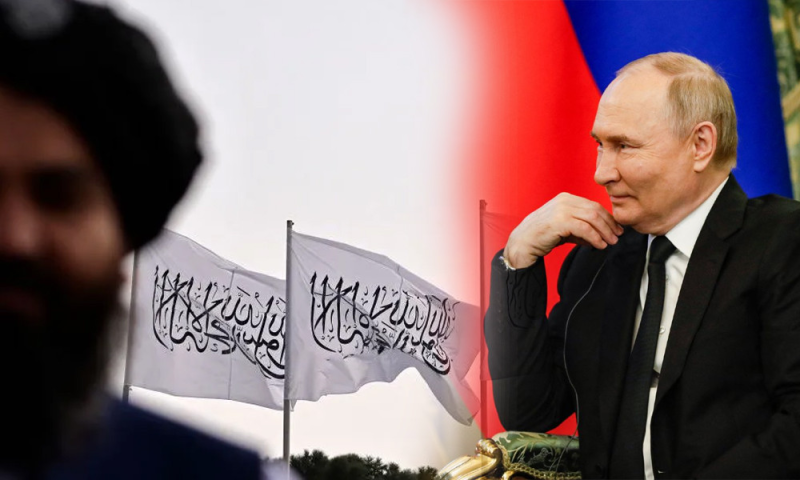- UNRWA Situation Report on Crisis in Gaza & Occupied West Bank |
- Intimidation or bloodshed cannot halt Bangladesh’s march to democracy |
- Khaleda Zia integral to an important chapter in BD history: Yunus |
- Enthusiasm marks Victory Day celebrations across Bangladesh |
- Dhaka-Delhi ties deep; to be shaped by trust, dignity, mutual respect |
Russia Removes Taliban From Terror List in Policy Shift

In a significant policy reversal, Russia’s Supreme Court has officially removed the Taliban from its list of designated terrorist organisations, paving the way for closer diplomatic and economic engagement with Afghanistan’s current rulers.
The court ruling, announced Thursday, follows a petition filed last month by Russia’s Prosecutor General. Supreme Court Judge Oleg Nefyodov stated that the restrictions on the Taliban’s status were lifted with immediate legal effect.
This decision marks a turning point in Moscow’s stance towards the group that took control of Afghanistan in August 2021 following the withdrawal of US forces. Since then, Russia has moved steadily towards engagement, viewing the Taliban as a potential regional partner and a bulwark against extremist threats such as Islamic State–Khorasan (ISIS-K), which was behind the deadly Moscow concert hall attack in March 2024.
Although the move does not equate to formal diplomatic recognition of the Taliban regime, it removes legal barriers for Russian officials to interact with Taliban representatives. Taliban leaders have visited Russia several times, participating in major forums like the St. Petersburg International Economic Forum and holding high-level meetings with Russian officials, including Foreign Minister Sergey Lavrov.
Russia had designated the Taliban as a terrorist organisation in 2003, primarily due to the group’s ties to insurgents in the North Caucasus. But evolving geopolitical realities, particularly the Taliban’s return to power, have prompted Moscow to reassess its approach. In recent years, Russia has opened a trade office in Kabul and discussed using Afghanistan as a regional energy corridor.
The shift aligns with broader international trends. China appointed a new ambassador to Taliban-ruled Kabul in 2023, and Kazakhstan removed the Taliban from its terror list last year. While no country has yet officially recognised the Taliban government, the growing engagement suggests a shift in international calculations.
Moscow now views the Taliban not only as a pragmatic regional partner but also as a counterterrorism ally, reflecting the changing dynamics in Central and South Asia.

